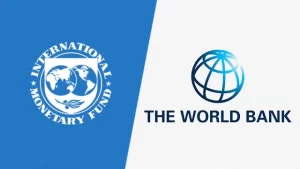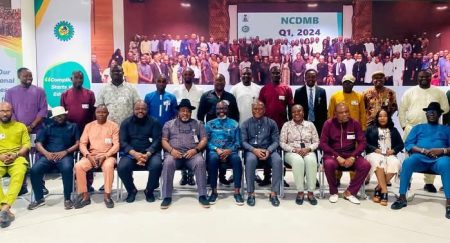 Gift Ekwueme
Gift Ekwueme
Dr. Amadi, who made the statement at the 4th National Colloquium in Sokoto, said the policies of the two international financial institutions lacked the requirements to move 200m Nigerians out of poverty and asked the nation to look beyond ideas being imposed by developed countries.
He added that developing countries should be able to choose policies that best suit their conditions while describing Nigeria’s high inflation rate as indefensible.
He said: “Compared with other African and Asian countries, especially Indonesia, which is comparable to Nigeria in most respects, economic development in Nigeria has been disappointing.
“With GDP of about $45 billion in 2001 and per capita income of about $300 a year, Nigeria has become one of the poorest countries in the world. As of 2000, it had earned about $300 billion from oil exports since the mid-1970s, but its per capita income was 20 per cent lower than in 1975.
“Meanwhile, the country has become so heavily indebted that it has serious difficulty servicing debt. Regional and sectoral unevenness in growth performance is high.
“From the foregoing, it is simply clear that to raise 200 million Nigerians out of poverty as this current administration has resolved to do within the next decade, it would take more than just making it a campaign mantra but a radical departure from economic orthodoxy of the Global North evinced in the Washington Consensus model,” he noted.
Amadi, who is a Doctoral Fellow at the University of Warwick in the UK, said economic growth strategies recommended by developed countries for developing nations are unworkable.
He further explained that developed countries have been promoting strategies, which they have never practised.
He added: “Historical Context of Development shows that many of today’s developed countries, such as the United Kingdom and the United States, achieved economic growth through strategies like tariffs, subsidies, and regulations to protect their nascent industries.
“This historical perspective contrasts sharply with the free-market, liberalisation policies they now promote for developing countries.
“The neoliberal policies advocated by institutions like the World Bank and the International Monetary Fund (IMF), such as rapid liberalisation of trade and investment, privatisation, and deregulation – are not consistent with the historical experiences of successful development.
“In fact, these policies might even hinder the growth of developing nations by exposing them prematurely to global competition.”
Amadi advised the Federal Government to adopt subsidies and other forms of intervention to save the economy.
“The state must play a significant role in guiding economic development, similar to the way it was utilized by now-developed countries during their own developmental stages.
“This includes the use of tariffs, subsidies, and other forms of government intervention to support budding industries. Shall we forget hastily how former president Donald Trump used tariffs to effectively protect the American economy from the onslaught of the Chinese trade practices.
“Developing countries should have the autonomy to choose policies that best suit their unique economic conditions and developmental stages. This contrasts with the one-size-fits-all approach often prescribed by international economic organizations.
“By providing this historical and critical analysis, I dare Nigeria’s leaders and economic policymakers to not be afraid to challenge conventional economic wisdom and call for a more nuanced and historically informed approach to economic development policy, especially for developing countries.
“There is now an urgent need for policy diversity and experimentation, making it incumbent on policymakers to acknowledge that strategies successful in one country may not be universally applicable,” he stressed.



